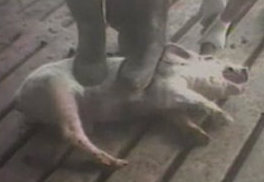In 1983, scientists published a paper on nuclear winter. This boosted the death toll of all-out nuclear war from ‘only’ 200-500 million to the very real possibility of the complete extinction of the human race*. But some argued the report was alarmist, and there did seem to be some issues with the assumptions. So – a military phenomena that might cause megadeaths, possibly true but requiring further study, and a huge research defense budget that could be used to look into this critical phenomena and that was already spending millions on all aspects of nuclear weapons – can you guess what happened next?
Correct – the issue was ignored for decades. For over twenty years, there were but a tiny handful of papers on the most likely way we could end our own existence, and a vague and persistent sense that nuclear winter had been ‘disproved’. But in 2007, we finally had a proper followup – with the help of modern computers, better models and better observations, what can we now say? Well, that nuclear winter is still a major threat; the initial fear was right. Their most likely scenario was:
A global average surface cooling of –7°C to –8°C persists for years, and after a decade the cooling is still –4°C […]. Considering that the global average cooling at the depth of the last ice age 18,000 yr ago was about –5°C, this would be a climate change unprecedented in speed and amplitude in the history of the human race. The temperature changes are largest over land […] Cooling of more than –20°C occurs over large areas of North America and of more than –30°C over much of Eurasia, including all agricultural regions.
Also, precipitation would be cut in half and we’d lose most of the ozone layer. But there was a more worrying development: it also seems that a small-scale nuclear war could generate its own mini nuclear winter.
Read More »Old threats never die, they fade away from our minds: nuclear winter

